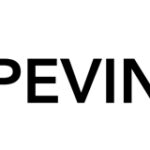Lisa Fitzpatrick, MD, MPH, MPA (she/her) is the founder and CEO of Grapevine Health, a digital health media company working to improve access to trusted health information for underserved communities.
 Grapevine Health connects people with relatable health care content they can understand, trust, and use to improve their health. From creating health education content for insurance companies and posting online videos to answering strangers’ questions on the street, Dr. Lisa works to communicate with people in ways that work for them.
Grapevine Health connects people with relatable health care content they can understand, trust, and use to improve their health. From creating health education content for insurance companies and posting online videos to answering strangers’ questions on the street, Dr. Lisa works to communicate with people in ways that work for them.
Here, she shares her insight on how to create accessible health information content and why it’s necessary to improve health equity and outcomes.
In Full Health (IFH): What inspired you to start Grapevine Health?
Dr. Lisa Fitzpatrick: It’s hard to understand health information. I was hearing from community members, friends, and family, that people were frustrated they couldn’t understand their doctor’s instructions or why they were on certain medications. People don’t understand the most basic things about their body. And during the pandemic especially, we saw firsthand how people were distrustful of health information unless they got it from a trusted messenger.
I started Grapevine health to give people access to relatable health information from people who look like them.
IFH: What obstacles might impact someone’s ability to access and understand health information — any that are particularly surprising or not often considered?
Dr. Lisa Fitzpatrick: Difficulty understanding health information and how to navigate the health system affects just about everyone. There have been studies showing that even people with a college education struggle to understand health information. I want to start there because I don’t want people to believe this is an issue that only affects underserved populations.
Grapevine Health, by intention, focuses on underserved Black and brown communities because they’re often left out of health innovation and health solutions. People with low background literacy tend to struggle the most with understanding health information, but also people with multiple chronic conditions struggle with health information simply because they have so many more providers and sources of information to coordinate.
Low health literacy affects health outcomes because people don’t have access to information they need in the way they need it. We also fail to accept how deeply medical mistrust is linked to our failure to ensure people understand what we are communicating.
Dr. Lisa Fitzpatrick, MD, MPH, MPA
Founder and CEO, Grapevine Health
IFH: Doctors typically have a philosophy of care that informs their practice — how would you describe your philosophy of communication?
Dr. Lisa Fitzpatrick: As a doctor, epidemiologist, and plain language champion, I need to communicate in many ways, to peers and colleagues and to the communities I am serving. When engaging the community, my philosophy of communication is plain language. We often take for granted what people understand about their health.
I am also a listener — though I haven’t always been. It’s something I’ve evolved toward over the last 20 years or so. It’s natural for doctors or health care providers to want to give information. And there have been studies that show doctors spend the majority of the time in a visit talking rather than listening. I think it’s really important to listen and really understand what people need.
I have learned over the years to listen intently to understand where a person is in their understanding and shift my response based on what I am hearing. During the pandemic, there were several examples of this. One day a woman asked me, “If my covid test was negative, why do I need to get vaccinated.” The same day I was asked how long to delay a vaccination after having covid since antibodies were present. These people have a different baseline understanding of the same health concept. So I try to be responsive to the person’s understanding. I love incorporating metaphors and storytelling in my health communication because these make the communication relatable and memorable.
SUBSCRIBE
Stay in the loop about new blog posts from equitable health innovation leaders, helpful resources and tools to help you bring the Principles to life, upcoming events, and more by joining our email list.
SUBSCRIBEIFH: Health literacy has become even more of a talking point in the wake of the pandemic. How did Grapevine Health step up to the plate to share important health information about COVID-19?
Dr. Lisa Fitzpatrick: It was natural for a digital health media communication company to want to explain what was happening with the pandemic. We engaged underserved and frontline communities through virtual sessions and on-the-street engagement. Even at the height of the pandemic, we were out in the community with our masks on answering people’s questions. We created videos throughout the pandemic to share on social media and YouTube.
I also enrolled in a Moderna clinical trial because I wanted Black people to see that there were Black doctors who believed in the safety of the vaccines and the integrity of the clinical trial process. I chronicled that experience on video and we posted these on social media as well.
Our solution addressed the pandemic by pairing Black and Spanish-speaking communities with doctors who understand and can relate to them, whether it’s in virtual sessions or through the content we create, on social media, the Internet, and even through some of our customers — like insurance companies.
IFH: What are some characteristics of good, accessible health content? And why is it so important?
Dr. Lisa Fitzpatrick: I think people prefer to see themselves or people like them in content because it is more relatable for them — they feel an emotional connection to the information. It needs to have authoritative information delivered in a way that’s understandable.
Our doctors refrain from using multi-syllable words, or medical and scientific jargon that might be confusing. If we use those words, we immediately explain the terms to ensure we are bringing everyone along the information journey. We like to say Grapevine Health offers edutainment. Overall, we want health information to be simple and down-to-earth enough that people would want to engage with us and expect to hear more from us.
IFH: What should health solution developers keep in mind when it comes to health literacy?
Dr. Lisa Fitzpatrick: The notion of the digital divide is — in some ways — a false narrative because the vast majority of people in the U.S. have access to smartphones. According to the FCC, 300 million people have access to some kind of broadband, so invoking the lack of digital access as a primary explanation for our failure to innovate or create digital health solutions for underserved communities is dishonest. We should work to improve access to full broadband capacity for everyone to ensure whoever wants to can participate in the technology of today, but we should invest time and resources into tech innovation for the devices people have in their hands and pockets.
People are using smartphones for all sorts of things from job applications and Google searches. They are scrolling on social media, connecting with friends and family, playing games, and watching YouTube videos. Yet, the health sector is woefully behind in meeting people in the digital spaces where they’re spending time. I want Grapevine Health to step into that gap and become a trusted health information and referral resource that is consistently visible and accessible in places where people from underserved communities are digitally paying attention.
I also want developers to talk directly to people and spend time observing how and why they use technology for health-related needs. Before I started Grapevine Health, I talked to hundreds of people who were insured by Medicaid and were from underserved Black communities. I started Grapevine Health because of these experiences. If it weren’t for feedback directly from Medicaid enrollees, I’d probably be off doing something else with less impact.
Dr. Lisa Fitzpatrick, MD, MPH, MPA
Founder and CEO, Grapevine Health
We have to follow the cues we’re getting from the people we serve and what they’re telling us about how they want to get their information digitally. In the health sector, when it comes to social media and internet digital health communication, we must get off the sidelines and into the game.
SUBSCRIBE
Stay in the loop about new blog posts from equitable health innovation leaders, helpful resources and tools to help you bring the Principles to life, upcoming events, and more by joining our email list.
SUBSCRIBE


Comments are closed.